Local Government Management Authority
The National Waste Management Plan
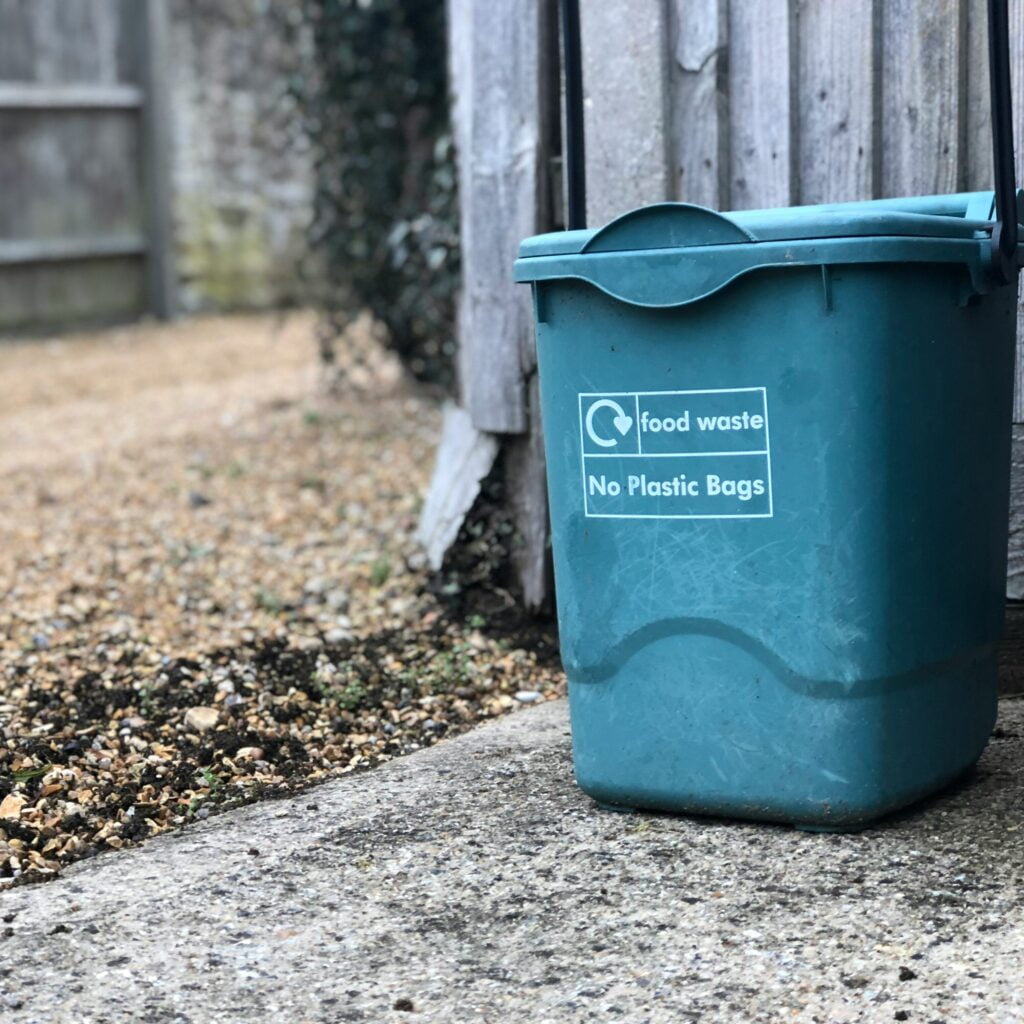
Background
Ireland is moving away from the traditional linear ‘take-make-use-dispose’ model towards a ‘circular economy’ regenerative growth model where resources are reused or recycled as much as possible and the generation of waste is minimised. The transition to a circular economy is essential to reduce pressure on natural resources, aid in achieving climate targets, support Sustainable Development Goals and create sustainable growth and jobs. It requires a collaborative national response across all sectors of the economy through the lifecycle of products and materials.
Objective
The Regional Waste Management Planning Offices, under the auspices of the County and City Management Association National Oversight Group co-ordinated the preparation of the first National Waste Management Plan for a Circular Economy.
This ambitious Plan sets out a framework for the prevention and management of waste in Ireland for the period 2024 to 2030.


Output & Assets
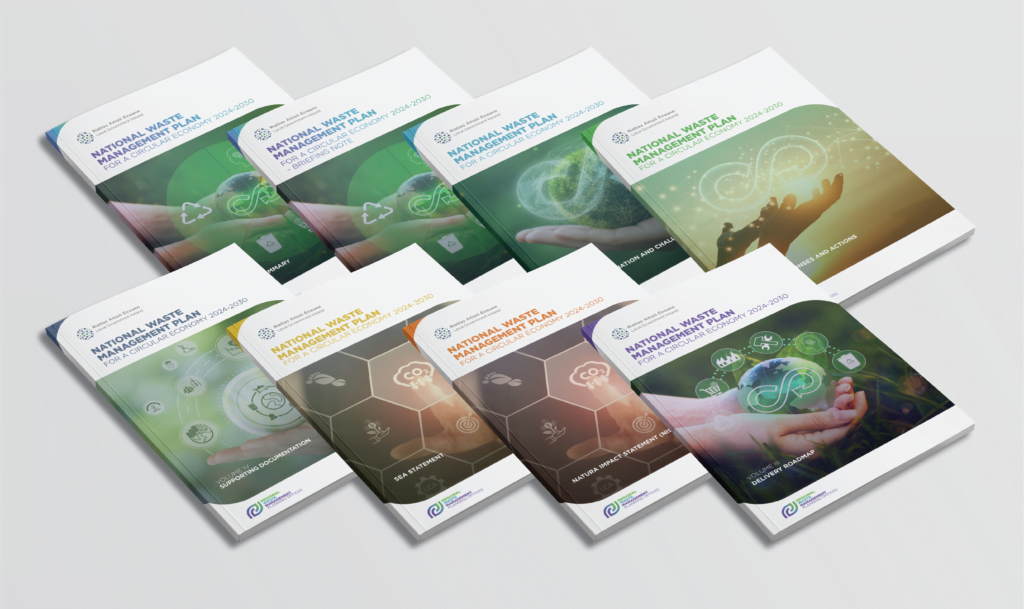
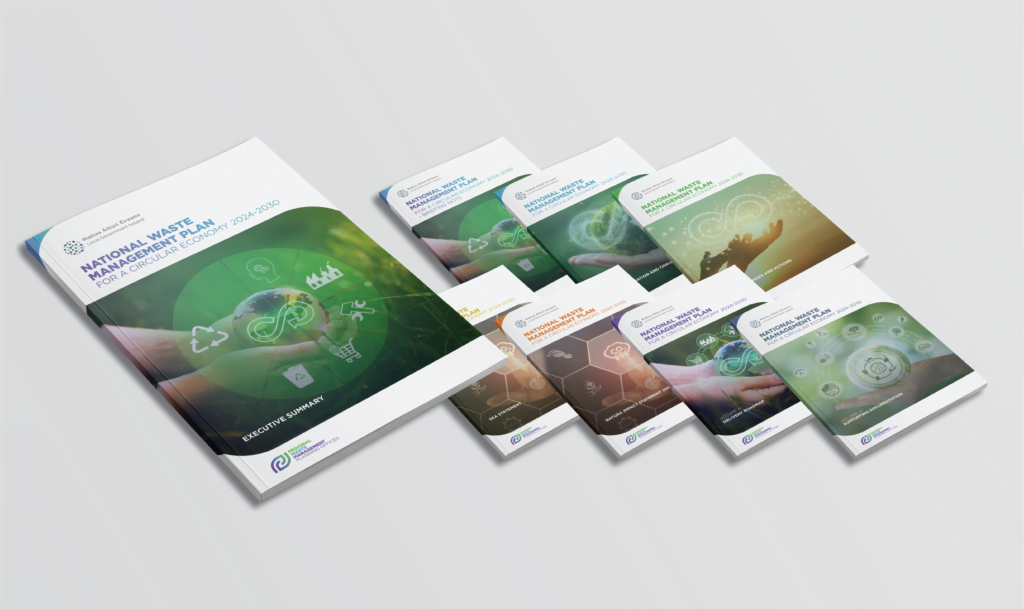
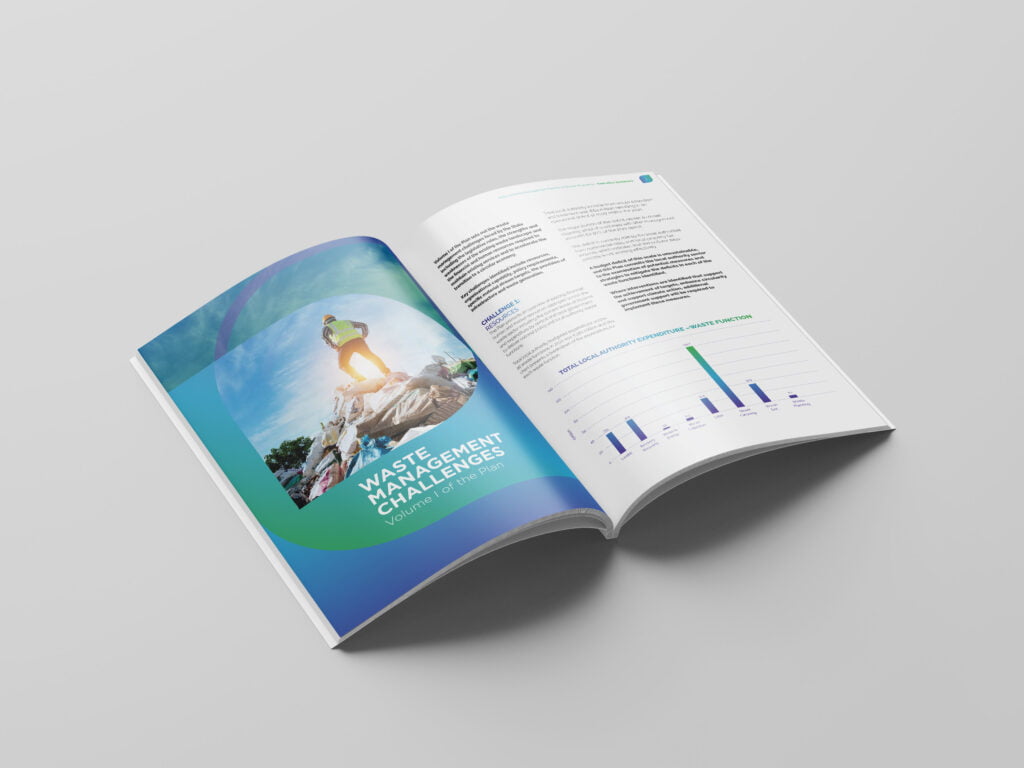
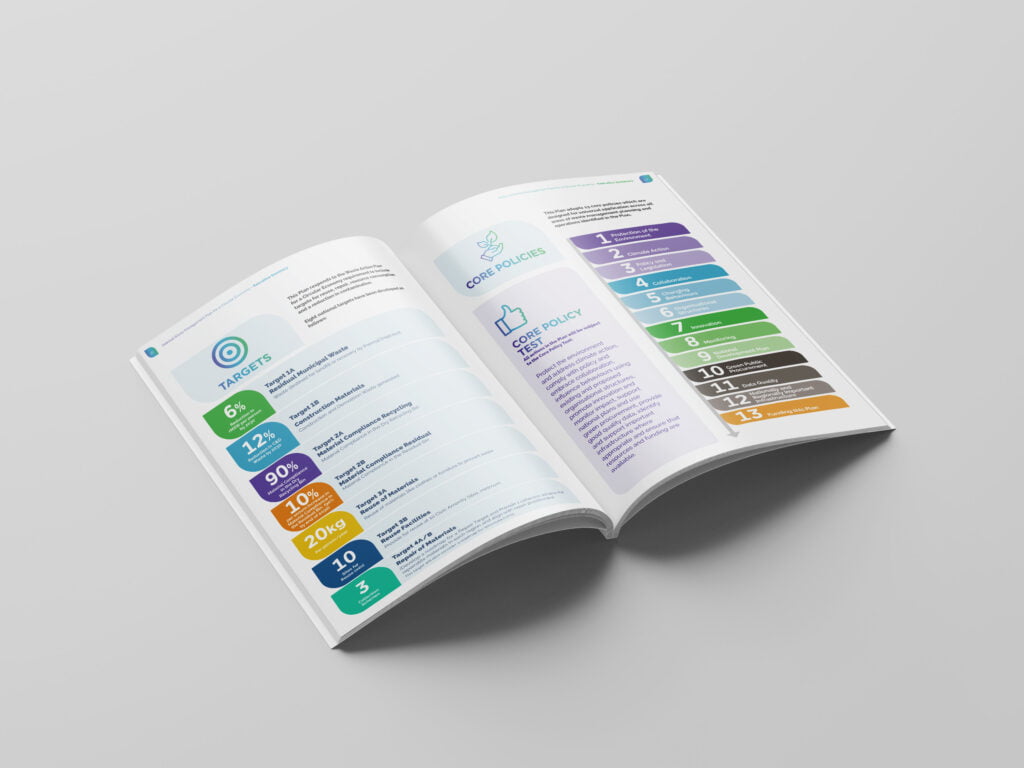

Research & Strategy Development
For Southern, it involved conceptualising the branding of the Plan, then the design and layout of six volumes of the publication, as well as an executive summary and a briefing note, amounting to over a thousand pages in total. Its purpose as an important reference document for multiple audiences was served by an attractive, easy to digest style, bringing the sometimes technically involved content to life.
Process & Presentation
The content of the Plan was created through extensive collaboration with key partners, stakeholders and the wider waste audience. In order to facilitate the consultation process, Southern first produced a full draft Plan. Between this draft and the completion of the finished publication, the process took 14 months, culminating in a national launch in Limerick’s Hanging Gardens, for which Southern also produced exhibition design and a 6 minute launch video.
Milestones
The creation of this vitally important document for Ireland required in-depth planning and project management, an extensive and rigorous proofing process, and adherence to timeline milestones consistently over the project lifecycle.
Campaign Results
